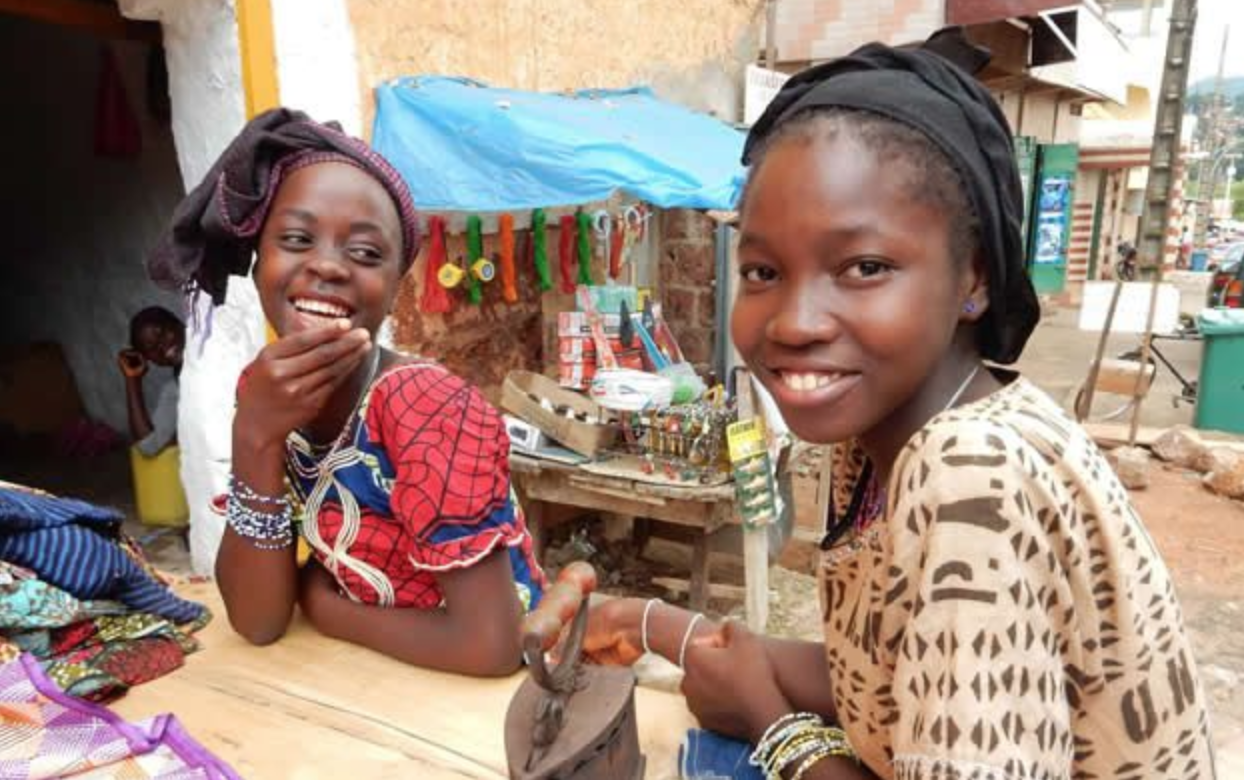Adolescence is a critical period of biological and psychosocial growth and development that marks a unique stage between childhood and adulthood. The nutrition of the world’s 1.2 billion adolescents, aged 10-19, will have a profound impact on their current and future health and well-being—as well as on future generations.
Adolescent girls in low- and middle-income countries face greater risks of undernutrition, overweight/obesity, and micronutrient deficiencies than their counterparts in high-income countries. Poor diet is a key risk factor for non-communicable diseases, a major and increasing public health problem in many countries. Furthermore, with the high number of pregnancies among adolescent girls, combating malnutrition is important to improve reproductive and birth outcomes of their children.
Despite the importance of nutrition and health in this stage of life, limited evidence exists on the diets and eating practices of adolescents, or the effectiveness of interventions—and thus, little to guide the design and implementation of programs focused on adolescents. Better data is needed now to shape better policies and programs to improve the lives of adolescents and future generations.
To address this challenge, the Adolescent Nutrition CALL TO ACTION: Better Data Now to Drive Better Policies and Programs in the Future launched June 19 at a Global Alliance for Improved Nutrition (GAIN)/World Health Organization (WHO)-sponsored meeting on adolescent nutrition in Geneva. IFPRI joins more than 30 organizations endorsing this effort and its seven priority actions. For the past several years, IFPRI researchers have been working to help fill the evidence gap on adolescent nutrition.
Research on Bangladesh provides a striking example of the importance of adolescent nutrition and health.
A recent IFPRI study comparing the differences in health and nutrition conditions between Bangladeshi pregnant adolescents aged 13-19 and adult pregnant women found that the adolescent mothers lagged behind the adult mothers in several key indices. They owned significantly fewer assets and had less household decision-making power, were thinner than the adult women, and recovered later and with greater difficulty after childbirth. Infants aged 0-5 months of adolescent mothers were also significantly smaller and shorter than same-age infants of adult women. These findings reaffirm the substantial risks that adolescent pregnancy poses for maternal and infant outcomes.
A nationwide survey in Bangladesh showed that both adolescent girls and boys were undernourished (had low body mass index) and had alarmingly low intakes of several essential micronutrients. Adolescent girls were more likely than boys to have inadequate intake of iron (64 percent of girls compared to 42 percent of boys), whereas boys were more likely than girls to have inadequate intakes of zinc (40 percent of boys compared to 32 percent of girls).
While adolescence appears to be a period of significant nutritional risk for both boys and girls in Bangladesh, the consequences of poor nutrition in girls are likely to be particularly severe because they will also affect their future children’s health, nutrition, and chances of survival. This is particularly important in Bangladesh, where nearly half of rural women have their first child by the age of 18.
Finally, another study in Bangladesh found that only some knowledge about infant and young child nutrition is passed onto adolescent girls living in the same household as mothers of young children—in other words, messaging efforts directed towards mothers had a small or no association with adolescent girls’ knowledge. This suggests that improving nutritional and health outcomes among adolescents may require messaging that specifically targets them.
We think of adolescence as a period of mental and emotional vulnerability and opportunity, but it is time we recognize the nutritional vulnerability and opportunity of adolescence as well. Adolescents comprise one in six people in the world, so ensuring their health and well-being is essential to achieving the Sustainable Development Goals. Healthy diet and eating practices during adolescence have the potential to mitigate nutritional deficits generated during the first decade of life, to break intergenerational cycles of malnutrition, and to limit the growing epidemic of obesity and non-communicable diseases. To support optimal adolescent development and experience, evidence-based policies and programs must target this group.
Sunny S. Kim is a Research Fellow with IFPRI’s Poverty, Health, and Nutrition Division (PHND); Deanna Olney is a Senior Research Fellow with PHND; Marie Ruel is Director of PHND.







